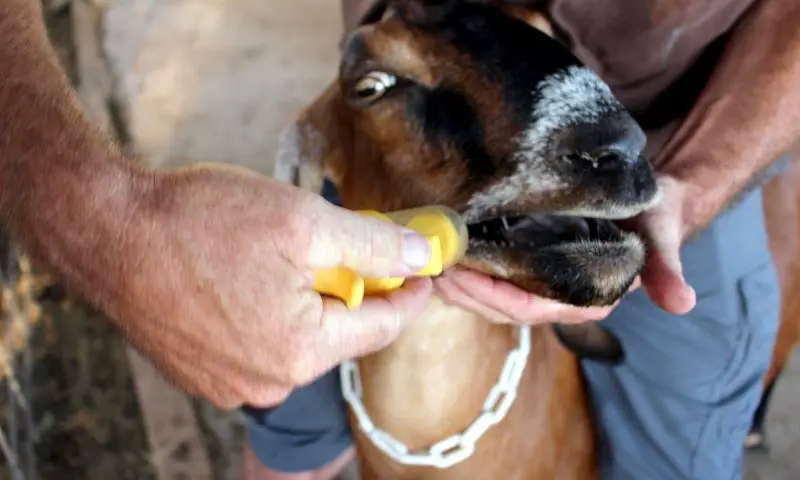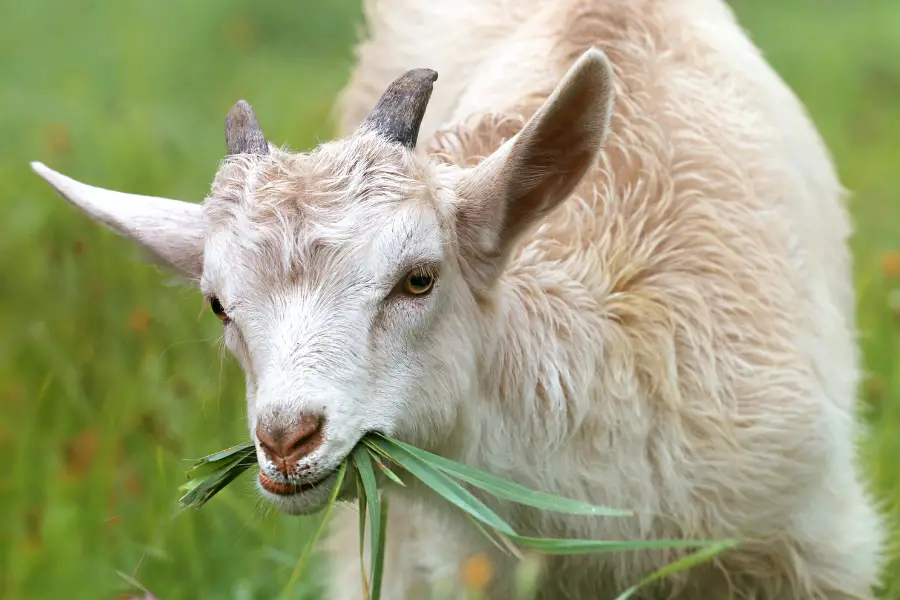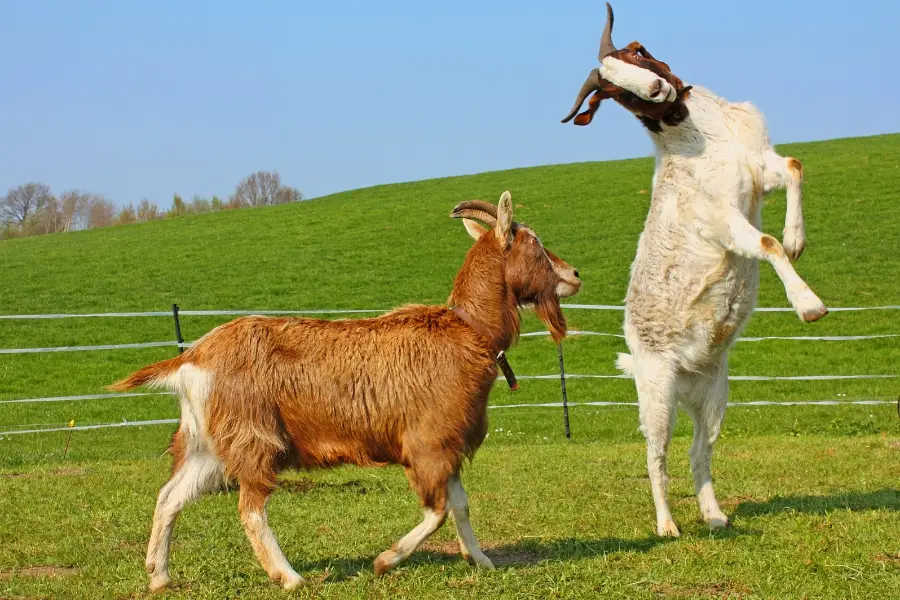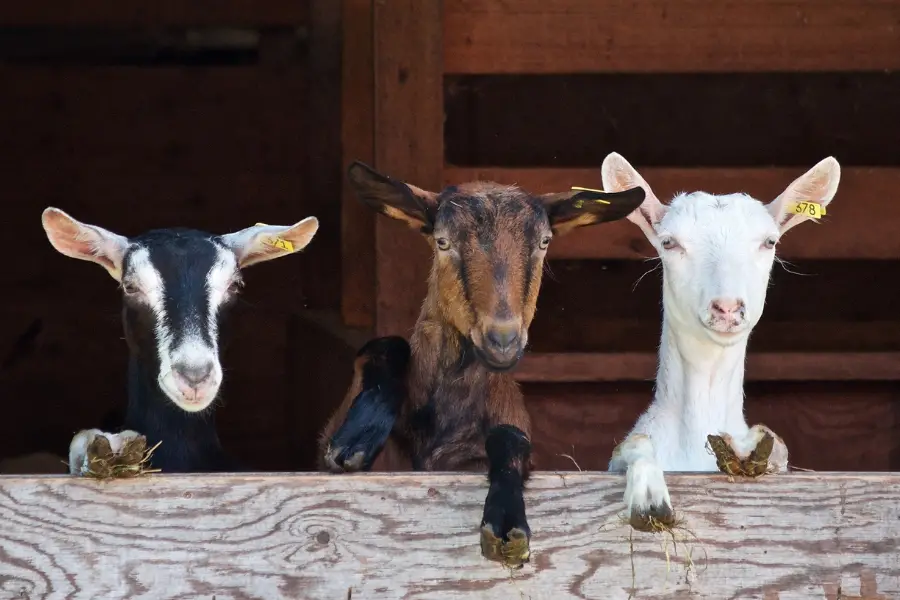
If you’re considering getting into raising goats, you really need to make sure that you do plenty of research before bringing any animals home. Many people think that goats are super easy to care for, and all you have to do is put them on a leash in the yard and they’re good to go. This actually isn’t the case at all.
Yes, goats are easy animals to care for, but they do require a bit more than just a leash and a yard to run around in. Today we’re going to take a look at some of the important things you should know bringing home your first goat. Let’s get started!
Get at Least Two Goats
One of the first things you need to know about goats is that they are highly social animals. They need to have company, and it is a good idea to buy a pair of goats rather than just one. They are herd animals, and they rely on one another to feel safe. Unless you plan on being your goat’s best friend and spending all of your time with it, get two or more goats!
Coccidia: A Parasite Found in All Goats

Another important thing you need to know about is coccidia. This is a parasite that is found in all goats, and it can be quite dangerous. In most cases, it is nothing to worry about, and it is quite manageable in all goats.
But, if your goats were to become stressed for any reason, or there are changes in weather or their environment, the levels of this parasite can become extremely harmful, even deadly. One of the biggest signs of coccidiosis is diarrhea.
While some people don’t think it is necessary, you do have an option, which is to pre-treat newborn kids when they are 21 days old, and then when they are 42 days old. This is because the parasite has a 21-day cycle.
De-Worm Your Goats

Besides parasites, you also need to worry about worms. Goats are known for attracting parasites, and they can easily get worms. Make sure you set up a regular de-worming schedule for your animals, and that you stick to it. Some people recommend de-worming once in the spring and again in the fall.
There are different types of medications for de-worming animals, and they can vary depending on where you live. It is best to talk to a veterinarian or someone who is experienced with goats to find out which de-wormer is the best choice for your animals.
Give them Baking Soda

Here is something you might be interested in learning more about. Goats need to have baking soda in their diets. They enjoy it, and it is loaded with minerals they need. Don’t worry about giving your goats too much soda. They will only eat what their bodies actually require.
Baking soda can keep the pH levels in balance, and it helps with a goat’s digestion. Considering the fact that goats will eat just about anything, it is probably a good idea to give them soda for their digestion. Soda can also help if your goat has bloat.
Replace Bottles with Vitamins

If you are getting kids that have been bottle fed, it is important that you replace that milk with something just as healthy. Many people recommend using vitamin D milk, which is not specifically for goats, but it does the trick.
An even better option is to use raw milk straight out of the cow, or better yet, raw goat’s milk from another goat. You can also buy goat’s milk in your local grocery store. Most goat owners do not recommend using a milk replacement, unless it is one that is made just for goats.
Give them Mineral Supplements

As we mentioned earlier, goats need minerals for good health. But, they don’t always get the minerals they need from their food sources. It is a good idea to get into the habit of giving your goats mineral supplements to make sure they are getting what they need.
You can get these supplements at any animal supply store. Just be sure to get supplements that are made specifically for your area (there may be certain illnesses prevalent, weather conditions that cause illnesses, etc.).
The best thing to do is to ask your vet which mineral supplements you should be giving to your goats. Never give them supplements that aren’t made specifically for goats, as this can make the animals very sick.
Probiotics are Important

In order for a goat to be able to digest its food, it needs to have live bacteria in its stomach. There are going to be times when they don’t have enough good bacteria, for a variety of reasons, and you will need to find a way to replace it. One thing you can do is give them probiotics. You can buy probiotics in syringes, and it is easy to give it to them orally.
Always Have a Supply of Antibiotics

Like any animal, goats can become sick. One of the first things you should do if you think your goats are ill is to check their temperature. Generally, a goat’s temperature is about 103 degrees F. If you check the temperature and it is much higher, it means that your goat is sick, and it will need to have some treatment. This is not always an option if your animal is sick on a weekend or holiday and there are no vets around. This is why many goat owners choose to keep a supply of antibiotics on hand. You can get this from your vet, and you will always be prepared should your goats become sick.
Provide Proper Shelter

Earlier in the article we mentioned that goats need more than just a yard; they require adequate shelter as well. While goats seem to be hardy animals, they are actually quite delicate, and they need to have proper, comfortable shelter.
Goats have their preferences when it comes to their shelters. They like to have a structure with three sides instead of something that is completely enclosed. They need to have a space that is well-ventilated. Keep in mind that goats use the urinate and defecate a lot, and they aren’t discriminating about where they do it. They will poop where they sleep. This is another reason why their shelters shouldn’t be enclosed, unless you plan to clean the stall frequently.
When they do their business, there end up being high levels of ammonia, which can be damaging to a goat’s lungs. Check their stalls and bedding regularly. If the bedding appears to be dirty or wet, it is time to change it so your goat won’t become sick.
Keep Them Warm

In addition to providing goats with shelter, you also need to make sure that they are warm enough. In most cases, goats are able to keep themselves warm, because they have cashmere undercoats that can help them get through the winter months.
But, if you live in an area that is extremely cold or that sees a lot of extreme weather, it might be a good idea to take steps to avoid your goats becoming cold, which can lead to pneumonia, which goats are very susceptible to.
You can get little coats for these animals, but this is only advised if you live in an area that is extremely cold. If they wear coats too much it can undermine the growth of their cashmere undercoats.
Give Them Lots of Fresh Water

All animals require water in order to survive, and your goats should have plenty of fresh water available to them at all times. Remember, goats urinate a lot, so they need to replace those lost fluids with fresh water. If you happen to have a small creek on your property, you may want to consider building the pen near the creek, so the goats can drink whenever they feel like it.
Keep in mind that goats tend to drink less in the winter. One way to combat this problem is to give them warm water. They will tend to drink more, and this is going to help them to stay hydrated.
Trim the Hooves

If you have ever owned a cat or a dog, you know that you have to keep their toenails trimmed. It is the same with goats, but instead of nails it is the hooves that need to be trimmed. This is not an easy task, and you may want to enlist the help of someone who has experience in trimming goat hooves.
The clippers are exceptionally sharp, and if the goats move around during the process you could end up cutting their skin. If you do ask someone to do it for you, watch what they are doing so you can learn how to do it yourself.
How to Trim Goat Hooves
Disbud and Dehorn

In addition to trimming the hooves, you may also want to consider disbudding and dehorning goats. This is not necessary, but many goat owners do opt for dehorning and disbudding. Some people think it is a cruel practice, but it does no harm to goats and it doesn’t cause them any pain or discomfort.
Disbudding should take place when a goat is around a week old, and it is done by a vet. The tool used for this type of procedure is a hot iron, so there is little pain and the horn isn’t likely to grow back. If you decide to wait until the goats are older, dehorning is the option to go with. The horn is simply cut off at the base. But, if you are concerned with causing your animal pain, it is best to go with disbudding.
Dehorning involves a lot of bleeding, and it can be quite painful. There is another option, but it can be quite dangerous. There is a cream that can be used to remove the horns, but if it gets in an animal’s eyes it can cause blindness. In most cases, you won’t have to worry about this anyway, because most goats are disbudded before you purchase them.
Prevent Kidney Stones

Did you know that goats are susceptible to kidney stones, particularly bucks and wethers? If a wether is castrated, the urinary tract no longer forms properly, and the animal is at a high risk of developing kidney stones.
The best way to keep this from happening is to make sure that they have plenty of fresh water available to them at all times, and that you are giving them high-quality hay and not the cheap stuff you can often find at low-end animal supply stores. You can also feed them some grain or alfalfa to prevent kidney stones.
Don’t Let Them Overeat
Goats love to eat, and unless they run out of food, they aren’t about to stop because they don’t have a trigger in their brains to tell them when they are full. For this reason, it is not difficult for goats to become bloated. It is a good idea to limit the amount of free range time your goats have. Sure, they need to graze, but they will eat and eat and eat until they make themselves sick.




